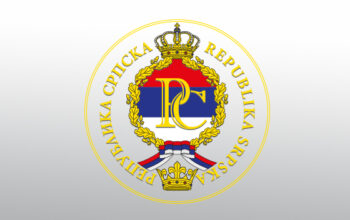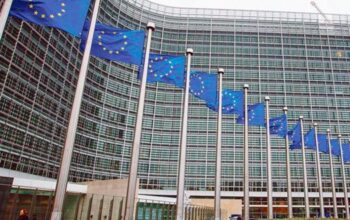On his blog, EU Special Representative to BiH Johan Sattler wrote that, nine months into his tenure, he remains optimistic about BiH’s chances of making real progress toward EU accession. The blog post is below.
The real champions of EU integration
15.05.2020
This is a complex country: you’ll see! I heard this so often when I arrived in BiH last summer. It was a common reaction to my optimism about the country’s chances of making real progress towards EU accession.
Nine months later, I still hold on to that optimism. There have been many set-backs – but I haven’t changed my mind.
Here I’ve been talking to some of the most committed, innovative and resilient people I’ve ever met. I’m sure there are thousands of such individuals across the country. They have strengthened my conviction that progress is possible.
These people face numerous obstacles. I refuse to accept that the main reason for this is the country’s complex structure. What it mainly comes down to is whether there is political will and courage necessary to resolve outstanding issues.
The pattern of taking one step forward and two steps backward has to be disrupted – for everyone’s sake. Breakthroughs must be followed with concrete action, not a reversion to bickering and trading familiar – and dismally divisive – rhetoric.
The Schuman Declaration signed 70 years ago this month paved the way for nations that once fought each other to reconcile and cooperate, and eventually to become friends and allies. Millions of people in the hard and hungry era after the Second World War were willing to make that happen, and they did. They were optimists too, despite harsh conditions and bleak prospects.
Yet, this idea of concrete cooperation and solidarity won through.
It won through because injustice and crime and the glorification of crime are unacceptable.
This is a fact so obvious that it shouldn’t need to be said – yet recurring events suggest otherwise. So, let me state very clearly:
no one has the right to use the historical narrative for political gain.
Last Saturday we commemorated Europe Day and Victory Day. It is a privilege to have celebrated with the people of this country. I believe that decades after events that transformed the fortunes of an entire continent we can realistically, pragmatically and in good faith champion a renewal of efforts to transform the fortunes of Bosnia and Herzegovina.
The way to do this is to focus again on the reforms that will lead to EU accession – that is what the overwhelming majority of citizens want. They are the real champions of EU integration. I urge citizens to step forward and demand more from the political leaders, to demand that they focus more on getting this country into the EU.
Criticism comes with the job. I’m not averse to it. But I do prefer constructive dialogue and fact-based discussion. It is a lot more productive than bad-tempered public exchanges. I welcome constructive engagement with all stakeholders – institutions, political leaders, civil society, media, young people and people in the arts, culture, sciences and academia.
Managing the post-Covid-19 socio-economic recovery of Bosnia and Herzegovina, ensuring that the country is prepared for any possible new outbreaks and making progress towards greater stability and eventual EU membership – these are demanding tasks that require strong commitment of political, economic, religious and community leaders in this country.
These leaders have a responsibility to set the tone of public discourse and prevent tensions from rising – it serves no purpose to return habitually to conflicts of the past. I believe everyone should take the step back.
Decades ago, my own country, Austria, made a conscientious effort to come to the terms with its past. And yes, it took time but the courageous leaders in politics, religion and society led the way in embracing what are today the fundamental EU values of democracy, human rights, tolerance and justice. This is what the European Union stands for. This is what the people of Bosnia and Herzegovina want.
It’s what Nina from Mostar told me she wants.
It’s also what Vanja from Sarajevo told me she wants.
Miroslav from Banja Luka too.
It is what people who have written and spoken to me have said they want.
For this to happen, we need to break the cycle.
I know so many people in this country who are willing to do that – which is why I remain an optimist.


